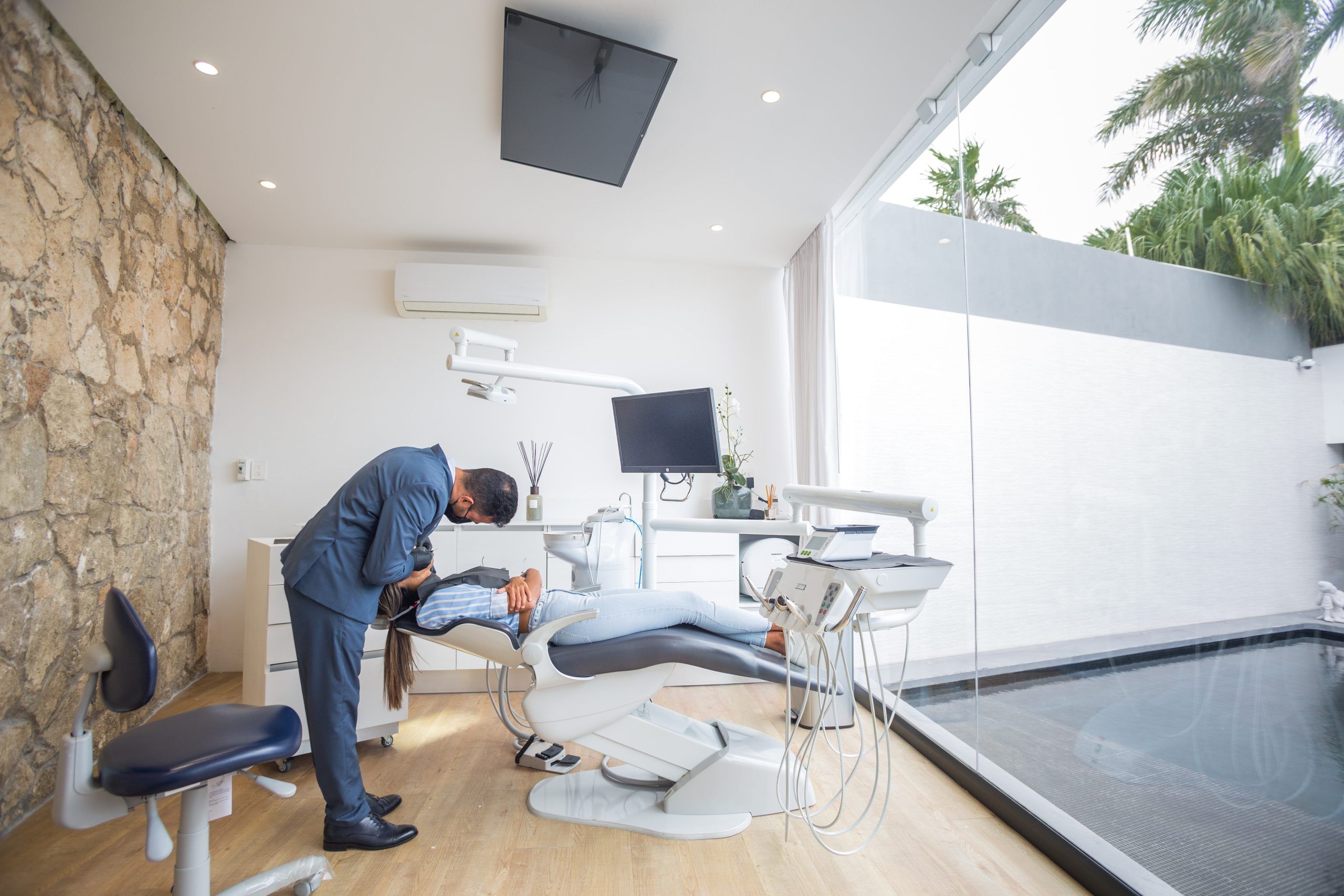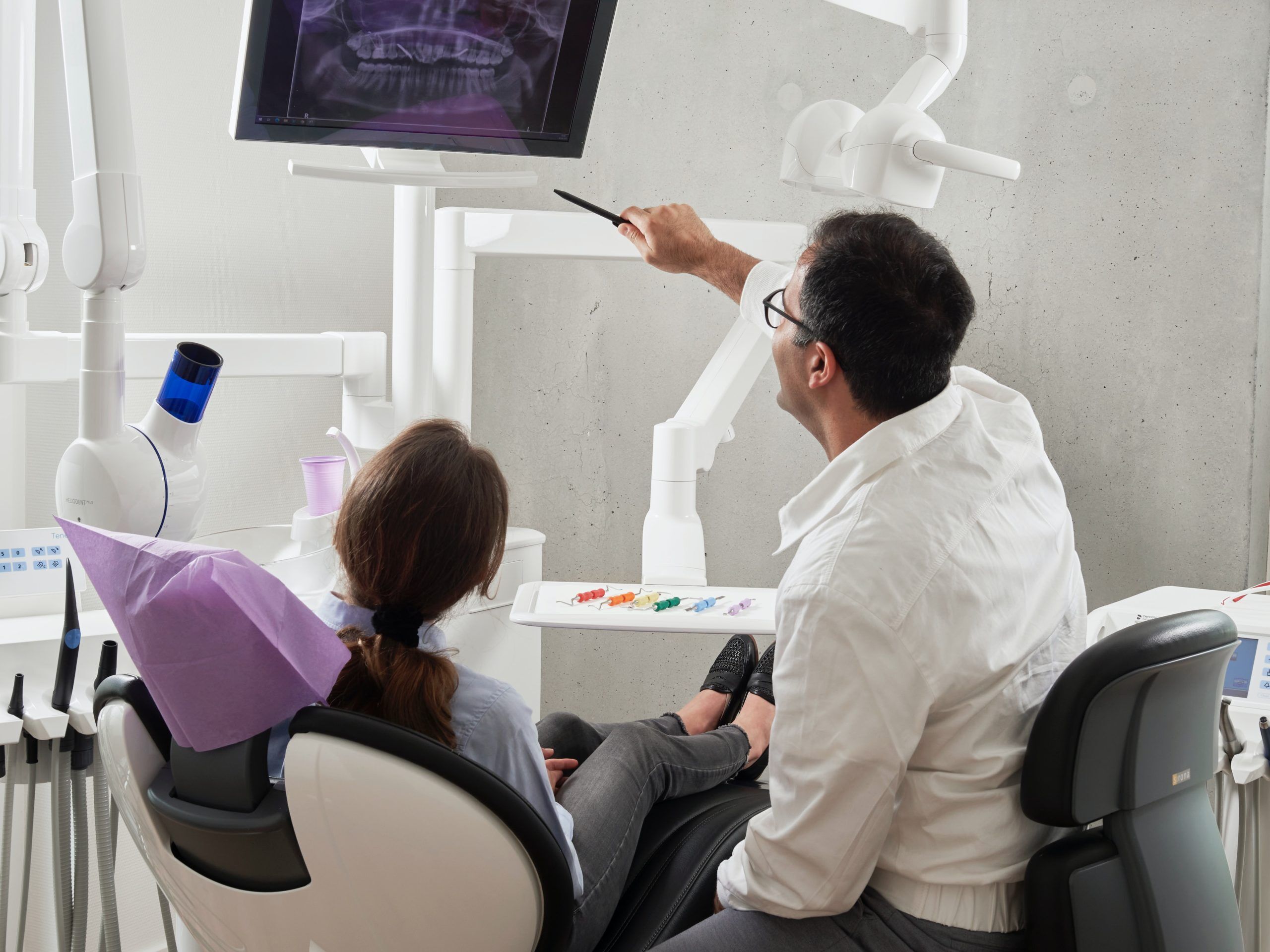Author: nearmedental
Pregnancy is a beautiful journey. Apart from other healthcare tips, it is also essential for expecting mothers to take care of their oral health as per the dentist that accepts medicare. It is necessary for maintaining mother as well as fetus health.
Why does pregnancy affect your dental health?
During pregnancy, women undergo a lot of physical changes. The hormone progesterone (which is responsible for maintaining pregnancy) influences the oral tissues causing them to be more vulnerable to bacterial invasion.
Other factors that cause increased vulnerability are morning sickness, hormonal fluctuations, and fatigue. Thus, it is necessary for expecting mothers to take special care of their oral health during the pregnancy period.
For example, pregnancy Gingivitis can occur at any time within the 9 months of gestation period. However, it generally develops in the second trimester around the 3rd month. To treat such problems, you need a dentist that accepts medicare.
Symptoms experienced during pregnancy
- Tooth decay
- Gum disease
- Bleeding gums
- Bad breath
For which dental problems during pregnancy dentist that accepts medicare?
Tooth decay requires dentist that accepts medicare
The most common condition that may arise would be tartar build-up which might lead to tooth decay. It is better to go for scaling, root planing, or deep cleaning to treat the problem before it spreads. A dentist performs these therapies under local anesthesia so there would be no pain during the process.
Gingival hyperplasia requires dentist that accepts medicare
A formation of another layer of calcified lining over gums leads to gingival hyperplasia. It is not a serious condition and often disappears after birth. But it can be irritating. The symptoms of gingival hyperplasia are redness, swelling, bleeding when flossing or brushing teeth, or tenderness in gums. If not, you need to visit a dentist that accepts medicare.
Sensitive teeth
Other common dental problems that women face during pregnancy are sensitive teeth when they eat something hot or cold.
What diet should you take during pregnancy?
A dentist that accepts medicare highly recommends maintaining a healthy diet during pregnancy. There are many foods that pregnant women can eat to maintain healthy teeth and gums without causing any problem for themselves or their unborn baby. It includes:
Vitamin C Rich Fruits and Vegetables
Pregnant women often suffer from Vitamin C deficiency, especially during the first trimester of pregnancy. So, foods rich in Vitamin C and antioxidants can help fight free radicals resulting from Vitamin C deficiency. These foods also contain enzymes such as lactase and amylase, which can help digest food easily without causing any digestive problems.
Milk and Cheese
Pregnant women need calcium to ensure fetal development. You can add green leafy vegetables, oysters, sardines, milk, cheese, yogurt, and other dairy products that contain high amounts of calcium to your diet. Besides, they provide Vitamin D, which is essential to increase the absorption rate of calcium.
Nuts
These food products have a high content of Vitamin E, proteins, minerals, and other vital nutrients. They help strengthen teeth and gums during pregnancy. Also, they contain antioxidants, polyphenols, phytochemicals, and flavonoids, which prevent cavities from forming.
The healthy fats present in nuts like almonds or walnuts promote increased saliva production. It helps clean the mouth naturally without causing any irritation or discomfort.
Other dental care tips during pregnancy by dentist that accepts medicare
Brush on time
Brushing is one of the most significant elements in taking proper care of your teeth. To ensure that you are brushing thoroughly, it is recommended to brush twice daily – once before bedtime and at least 30 minutes after mealtime.
Brushing after every meal with fluoride toothpaste also helps in preventing dental cavities. Additionally, chew sugarless gum after meals to increase saliva flow in your mouth that washes away bacteria that cause tooth decay.
Regular visit to a dentist that accepts medicare
To keep your teeth healthy, it is highly recommended to visit a dentist that accepts medicare for regular check-ups. They would help you know about the present oral state of your mouth.
Besides, pregnant women must discuss their pregnancy concerns with their dentist before doing anything that might affect them or the baby. Accordingly, they can advise any immediate treatments required in order to maintain proper dental hygiene.
Dental care tips post-pregnancy by a dentist that accepts medicare
After pregnancy, there are postpartum dental care tips that women should follow to maintain good dental health. A good diet is also necessary for nursing mothers. So, make sure you get enough calcium in the diet from dairy products like cheese and yogurt or green leafy vegetables. Calcium is essential for not only maintaining overall health. But it also helps ensure healthy teeth and gums after pregnancy when they are most vulnerable.
Final words by a dentist that accepts medicare
Regular dental care helps reduce the chances of dental problems during pregnancy, labor, and post-delivery. It is crucial to consult your primary dentist or oral healthcare provider before taking any dietary supplements. They might interfere with how the baby absorbs nutrients through the placenta.



